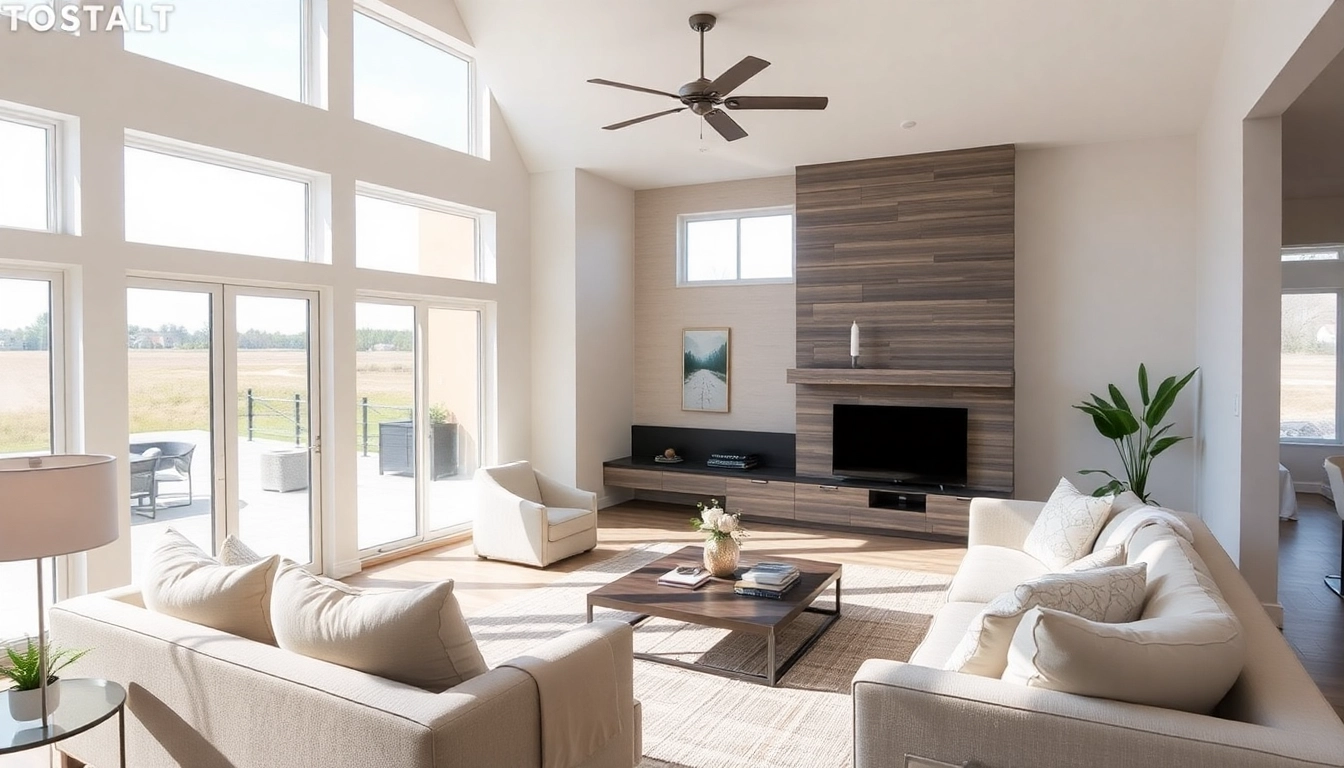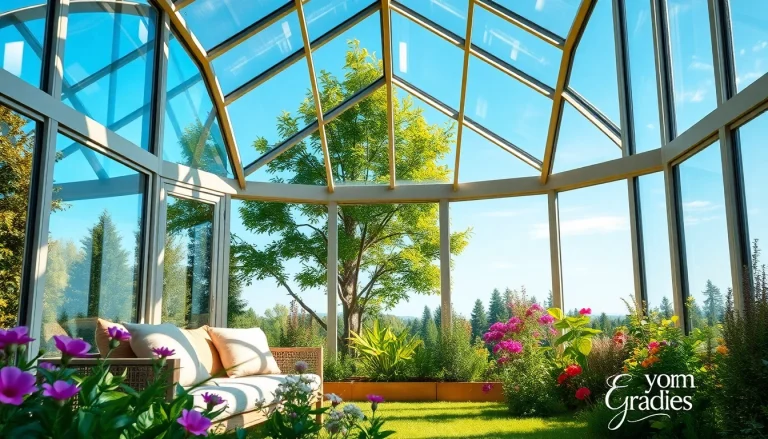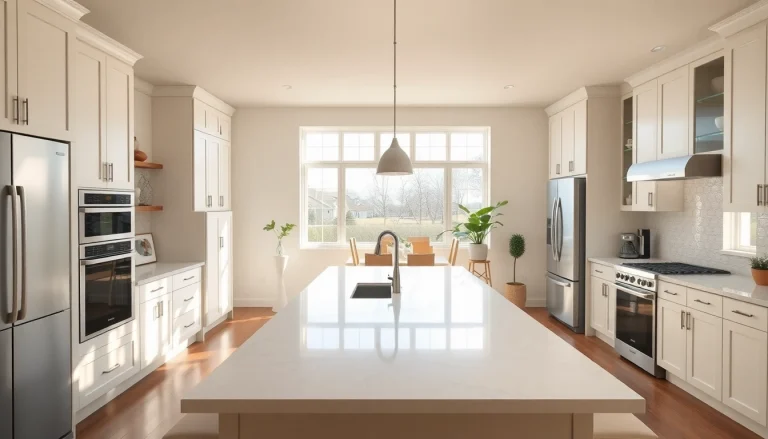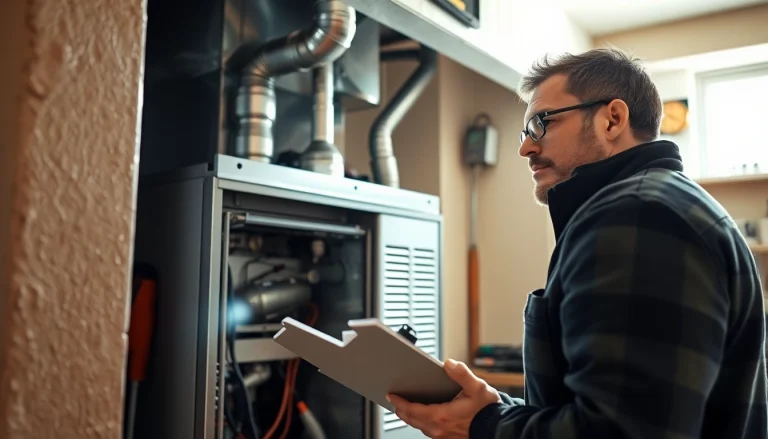
Understanding New Home Construction
What is New Home Construction?
New home construction refers to the building of homes from the ground up. This process typically includes a vast array of steps, from choosing a piece of land and designing the house to selecting materials and hiring contractors. Unlike purchasing an existing home, new construction allows buyers to customize their living spaces to meet their needs and preferences. Whether you’re starting from scratch or working with a builder to create your dream home, this process requires careful planning, coordination, and attention to detail.
Key Benefits of New Home Construction
Engaging in new home construction can bring several key benefits, many of which stand out when compared to purchasing an existing property:
- Customization: Home builders can tailor every aspect of the house, from the floor plan to the finishes, ensuring the home aligns with personal tastes.
- Energy Efficiency: New homes are often built with modern materials and methods that enhance energy efficiency, potentially lowering utility bills.
- Modern Features: Buyers can select new technologies and amenities that may not be present in older homes, such as smart home systems and open layout designs.
- Less Maintenance: Since everything is new, homeowners can expect lower maintenance costs and fewer repairs for several years.
- Building Warranty: Many new constructions come with builders’ warranties, offering additional peace of mind against structural issues and defects.
Factors to Consider Before Building
Before embarking on new home construction, it’s essential to consider several critical factors that will influence the project:
- Location: The location of your new home is paramount. Consider factors such as proximity to schools, workplaces, amenities, and the overall community vibe.
- Budget: Understanding your budget is crucial. This includes the cost of land, construction, materials, and additional expenses like landscaping and interior design.
- Site Conditions: The characteristics of the land, such as terrain, soil quality, and local regulations, can significantly impact the feasibility and cost of your project.
- Design Choices: Selecting the right design for your home can affect livability, aesthetics, and value. Consider future requirements and resale potential.
- Timeframe: Understand the time commitment involved in building a new home. Framing a house can take several months, and unexpected delays are not uncommon.
Finding New Home Construction Near Me
Top Online Resources for Home Searches
To begin your search for new home construction, various online resources can help you find available properties in your area:
- New Home Construction near me is a useful starting point as it provides local builders and listings.
- Zillow: This platform allows users to filter searches specifically for new construction homes based on location and other criteria, offering extensive information on property details.
- Realtor.com: Users can find dedicated sections for new construction homes, complete with photos, builder information, and median price values.
- NewHomeSource: This resource specializes in new constructions and features a comprehensive collection of available builders and their projects across the country.
Evaluating Builders in Your Local Area
Choosing the right builder is a pivotal step in the new home construction process. When evaluating builders in your area, consider the following:
- Reputation: Research builder reviews and ask for referrals from previous clients. Websites like Angie’s List and Yelp can provide insights into customer satisfaction.
- Experience: Investigate how long the builder has been in business and their experience with similar projects to ensure they can meet your specific needs.
- Work Quality: Visit previously completed homes to assess workmanship, design quality, and the overall feel of the completed projects.
- Warranty Terms: Understand the warranty offered by the builder, which can protect your investment and address any structural issues that may arise after you move in.
Maximizing Local Real Estate Listings
To effectively search for new home construction, keeping up with local real estate listings is essential. Here are some strategies:
- Set Up Alerts: Use real estate websites to set up alerts for new listings in your area to stay informed and react quickly when suitable options appear.
- Network: Engaging with local real estate agents can provide insider knowledge of the market and upcoming developments not yet listed online.
- Attend Open Houses: Visiting open houses allows for firsthand experience of the quality and design of new constructions, giving a better sense of what different builders offer.
The Process of Building a New Home
Choosing the Right Location and Lot
The first step in the building process is selecting the right location and lot for your new home. This decision will influence your lifestyle, home value, and future resale opportunities:
- Community Atmosphere: Research neighborhoods to find a community that suits your lifestyle, considering schools, parks, and social amenities.
- Lot Size and Shape: The physical characteristics of the lot will determine what kind of home you can build and allow for outdoor spaces like gardens or patios.
- Accessibility: Evaluate the proximity to major routes, public transportation, shops, and essential services, which can affect daily convenience.
Designing Your Custom Floor Plan
Once you’ve secured your lot, it’s time to craft a floor plan that meets your family’s needs:
- Layout: Choose between single-story and multi-story designs, balancing factors like accessibility and space efficiency.
- Room Functionality: Consider how each room serves your lifestyle. Do you need an office, gym, or space for guests?
- Future-Proofing: Design with flexibility in mind — consider spaces that can adapt as your family grows and changes.
- Professional Help: Enlisting the help of an architect can help you create an innovative and functional design that adheres to building codes.
Working with Contractors and Inspectors
Building a home requires collaboration with various professionals. Understanding their roles can streamline your project:
- General Contractor: A general contractor manages the overall construction process, coordinating subcontractors and ensuring the work stays on schedule.
- Subcontractors: These specialized professionals handle specific tasks (e.g., plumbing, electrical work). Ensure they are licensed and insured.
- Building Inspectors: Regular inspections throughout the construction process help make sure the work complies with local regulations and standards.
Budgeting for New Home Construction
Understanding Costs and Financing Options
Budgeting for new home construction is multifaceted; understanding costs and available financing options is crucial:
- Land Costs: Purchase price of the lot encompasses the starting point for your overall budget.
- Construction Costs: This includes both hard costs (e.g., materials, labor) and soft costs (e.g., permits, inspections).
- Financing Options: Explore various mortgage options for construction, including construction-to-permanent loans that cover both stages of the build.
Common Unexpected Expenses
Even with careful budgeting, there can be surprises along the way. Here are common unexpected expenses to be aware of:
- Site Preparation: Costs for clearing or leveling the lot can sometimes exceed initial estimates.
- Design Changes: Modifications during the building process can lead to additional costs, so ensure your design is nailed down before construction starts.
- Delays: Weather or material shortages can set back your timeline, potentially increasing labor costs due to extended worker engagements.
Saving Strategies for Home Builders
Employing smart saving strategies can help manage your budget effectively:
- Research Materials: Investigate bulk purchasing of materials or seeking cost-effective alternatives without sacrificing quality.
- Negotiate Contract Terms: Speak with contractors to negotiate better terms or find ways to keep costs down through labor agreements.
- Select Energy-Efficient Solutions: Though more expensive upfront, energy-efficient appliances and building materials pay off in the long run through savings on utility bills.
Common Questions About New Home Construction
Is New Construction Cheaper than Buying?
Generally, new construction homes can be more expensive than existing homes due to the current cost of building materials and labor. Existing homes might offer more value if the buyer is willing to invest in repairs and renovations.
What’s the Most Expensive Part of Building?
The framing stage, which forms the basic structure of the house, typically ranks among the highest costs in the building process. This involves significant quantities of materials like wood or steel and skilled labor.
How to Find New Homes Being Built?
Popular ways to locate new construction homes include online marketplaces such as Zillow, Redfin, and Realtor.com. These platforms allow detailed searching by location, specifications, and price range.






